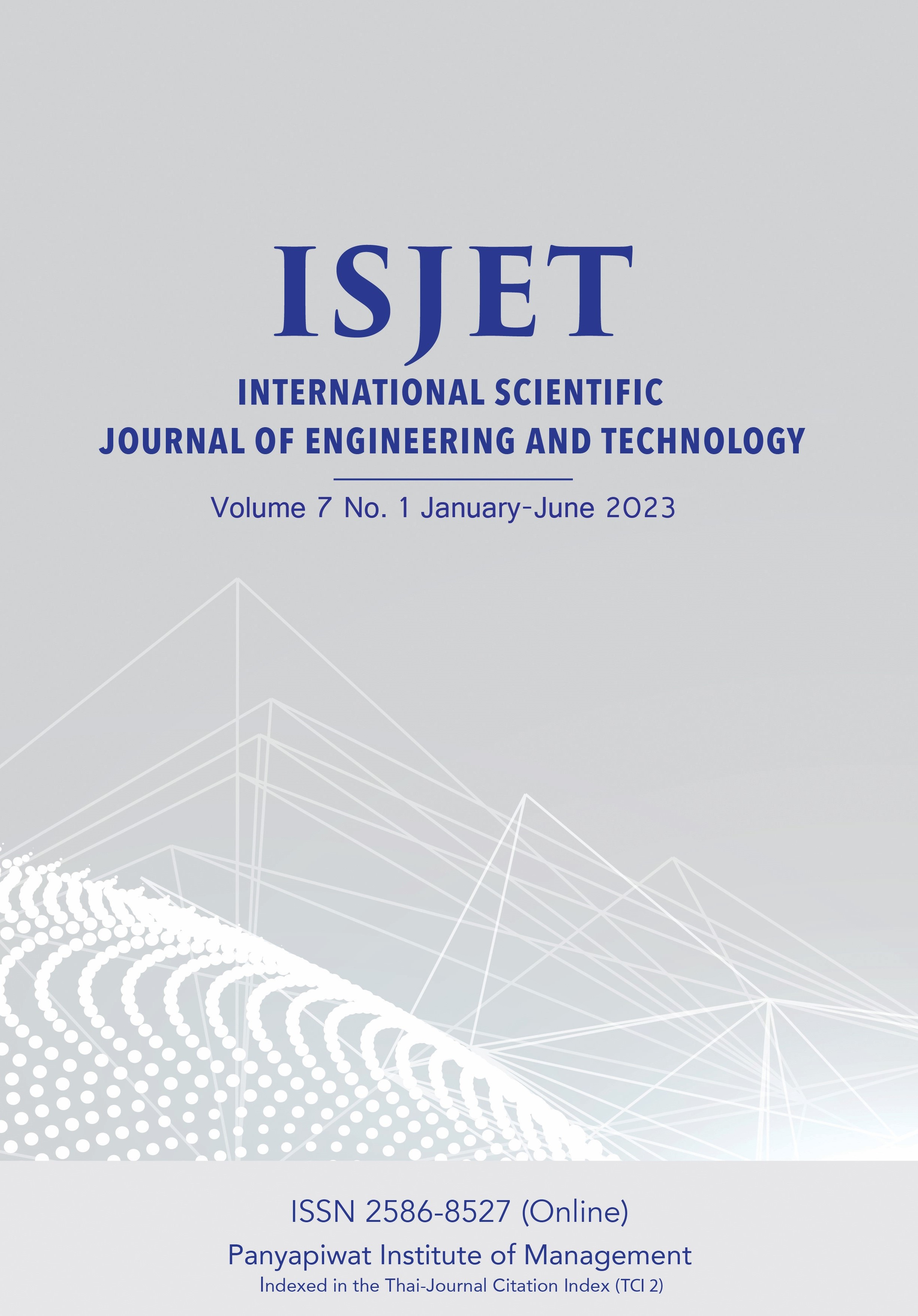Sentiment Analysis on Thai Social Media Using Convolutional Neural Networks and Long Short-Term Memory
Main Article Content
Abstract
The objective of this research purposes a sentiment analysis of Thai social media using deep learning techniques consisting of a convolutional neural network, long short-term memory, and a gated recurrent unit. This research was used to test the algorithm with a wongnai product and service dataset and measured performance with accuracy. The experiment of this research found convolutional neural networks with long short-term memory outperform convolutional neural networks, long short-term memory, and gated recurrent units in classification accuracy, with an accuracy of 85.0%, followed by long short-term memory accuracy of 83.7%, convolutional neural network accuracy of 77.0% and finally gated recurrent unit an accuracy of 65.4% respectively. Therefore, the hybrid working model of a Convolutional Neural Network with long short-term memory is most suitable and effective for Thai sentiment analysis.
Article Details

This work is licensed under a Creative Commons Attribution-NonCommercial-NoDerivatives 4.0 International License.
เนื้อหาข้อมูล
References
D. Sharma, “Sentiment Analysis Techniques for Social Media Data: A Review,” in Proc. ICTSCI., 2019, pp.75-90.
R. Ahmad and Y. Shaikh, “Opinion Mining and Sentiment Analysis for Classification of Opinions on Social Networking Sites Using Machine Learning Algorithms: Systematic Literature Review,” International Journal of Advanced Research in Computer and Communication Engineering, vol.10, no. 5, May. 2011.
B. Pang, L. Lee, and S. Vaithyanathan, “Thumbs Up? Sentiment Classification Using Machine Learning Techniques,” in Proc. Conf. Empirical Methods in Natural Language Processing, 2002.
K. Floyd, R. Freling, S. Alhoqail et al., “How Online Product Reviews Affect Retail Sales: A Meta-Analysis,” Journal of Retailing, vol. 90, no. 2, pp. 217-232, Jun. 2014.
S. Poria, E. Cambria, D. Hazarika et al., “A Deeper Look into Sarcastic Tweets Using Deep Convolutional Neural Networks,” in Proc. Int. Conf. 26th on Computational Linguistics, 2016, pp. 1601-1610.
R. Taemung and N. Chirawichitchai. “Thai Sentiment Analysis of Product Review Online Using Support Vector Machine,” Journal of Engineering Siam University, vol. 18, no 34, pp. 1-12, Jun. 2017.
N. Chirawichitchai. “Developing Term Weighting Scheme Based on Term Occurrence Ratio for Sentiment Analysis,” Information Science and Applications, vol. 339, pp. 737-744, Feb. 2015.
N. Chirawichitchai, “Emotion Classification of Thai Text-Based Using Term Weighting and Machine Learning Techniques,” in Proc. Conf. 11th JCSSE., 2014, pp. 91-96.
V. Q. Nguyen. “Real-Time Event Detection Using Recurrent Neural Network in Social Sensors,” International Journal of Distributed Sensor Networks, vol. 15, no. 6, pp. 1-15, Jun. 2019.
N. Kalchbrenner, E. Grefenstette, and P. Blunsom. “A Convolutional Neural Network for Modelling Sentences,” in Proc. ACL., 2014, pp. 655-665.
S. Li and B. Gong. “Word Embedding and Text Lassification Based on Deep Learning Methods,” in Proc. CSCNS2020, 2021, pp.1-5.
J. Chung, C. Gulcehre, K. Cho et al., “Empirical Evaluation of Gated Recurrent Neural Networks on Sequence Modeling,” in Proc. Int. Conf. NeurIPS., 2014. pp. 1-9.
P. Srivastava. (2019, Dec. 31). Essentials of Deep Learning: Introduction to Long Short-Term Memory. [Online]. Available: https://www.analyticsvidhya.com/blog/2017/12/fundamentalsof-deep-learning-introduction-to-lstm
L. Kurniasari, “Sentiment Analysis Using Recurrent Neural Network-LSTM in Bahasa Indonesia,” Journal of Engineering Science and Technology, vol. 15, no. 5, pp. 3242-3256, Oct. 2020.
N. Chirawichitchai, “Sentiment Classification by a Hybrid Method of Greedy Search and Multinomial Naïve Bayes Algorithm,” in Proc. ICT&KE., 2013, pp. 1-4.
S. N. Murthy, S. R. Allu, B. Andhavarapu et al. “Text-Based Sentiment Analysis Using LSTM,” International Journal of Engineering Research & Technology, vol. 9, no. 5, pp. 299-303, May. 2020.
X. Shi, Z. Chen, H. Wang et al., “Convolutional LSTM Network: A Machine Learning Approach for Precipitation Nowcasting,” in Proc. Int. Conf. NeurIPS., 2015, pp. 802-810.


